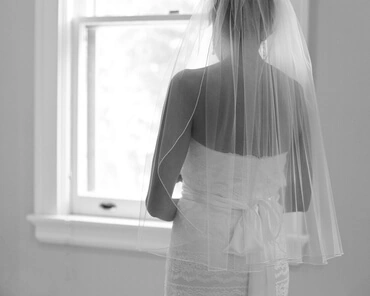1
Trubte trubou na Sionu, a křičte na hoře svaté mé, nechť se třesou všickni obyvatelé této země, nebo přichází den Hospodinův, nebo blízký jest,
2
Den temnosti a mračna, Den oblaku a mrákoty, jako záře jitřní rozprostřená po horách: Lid mnohý a silný, jemuž rovného nebylo od věků, aniž po něm kdy bude až do let národů i pronárodů.
3
Před tváří jeho oheň zžírati bude, a za ním plamen plápolati; Před ním země tato jako zahrada Eden, ale po něm bude poušť přehrozná, a aniž bude, což by ušlo Před ním.
4
Způsob jeho bude jako způsob koní, a jako jízdní, tak poběhnou.
5
Jako s hřmotem vozů po vrších hor skákati budou, jako hluk plamene ohně zžírajícího strniště, jako lid silný zšikovaný k bitvě.
6
Tváři jeho děsiti se budou lidé, všecky tváře zčernají jako hrnec.
7
Jako rekové poběhnou, jako muži váleční vstoupí na zed, a jeden každý cestou svou půjde, aniž se uchýlí z stezek svých.
8
Jeden druhého nebude tlačiti, každý silnicí svou půjde, a byť i na meč upadli, nebudou raněni.
9
Po městě těkati budou, po zdech běhati, na domy vstupovati, a okny polezou jako zloděj.
10
Před tváří jeho třásti se bude země, pohnou se nebesa, slunce i měsíc se zatmí, a hvězdy potratí blesk svůj.
11
Hospodin pak sám vydá hlas svůj před vojskem svým, proto že velmi veliký bude tábor jeho, proto že silný ten, kdož vykoná slovo jeho. (Nebo veliký bude den Hospodinův a hrozný náramně), i kdož jej bude moci snésti?
12
A protož ještě nyní dí Hospodin: Obraťte se ke mně samému celým srdcem svým, a to s postem a s pláčem i s kvílením.
13
A roztrhněte srdce vaše, a ne roucha vaše, a navraťte se k Hospodinu Bohu vašemu; neboť jest on milostivý a lítostivý, dlouhočekající a hojný v milosrdenství, a kterýž lituje zlého.
14
Kdo ví, neobrátí-li se a nebude-li želeti, a nezůstaví-li po něm požehnání, oběti suché a mokré Hospodinu Bohu vašemu.
15
Trubte trubou na Sionu, uložte půst, svolejte shromáždění.
16
Shromažďte lid, posvěťte shromáždění, shromažďte starce, shromažďte maličké i ty, jenž prsí požívají; nechť vyjde ženich z pokojíka svého a nevěsta z schrany své.
17
Kněží, služebníci Hospodinovi, ať plačí mezi síňcí a oltářem, a řeknou: Odpusť, ó Hospodine, lidu svému, a nevydávej dědictví svého v pohanění, tak aby nad nimi panovati měli pohané. Proč mají říkati mezi národy: Kde jest Bůh jejich?
18
I bude horlivou milostí zažžen Hospodin k zemi své, a slituje se nad lidem svým.
19
A ohlásí se Hospodin, a řekne lidu svému: Aj, já pošli vám obilé, mest a olej, i budete jím nasyceni, aniž vás vydám více v pohanění mezi pohany.
20
Nebo půlnoční vojsko vzdálím od vás, a zaženu je do země vyprahlé a pusté, přední houf jeho k moři východnímu, konec pak jeho k moři nejdalšímu; i vzejde z něho smrad a puch, jakžkoli sobě mocně počíná.
21
Neboj se země, plésej a vesel se; neboť mocně dělati bude Hospodin dílo své.
22
Nebojtež se zvířátka polí mých; neboť se zotaví pastviska na poušti, a stromoví přinese ovoce své, fík i vinný kmen vydadí moc svou.
23
I vy, synové Sionští, plésejte a veselte se v Hospodinu Bohu vašem; nebo vám dá déšť příhodný, a sešle vám déšť hojný, podzimní i jarní, v čas.
24
I budou naplněny stodoly obilím, a oplývati budou presové mstem a olejem.
25
A tak nahradím vám léta, kteráž sežraly kobylky, brouci, chroustové a housenky, vojsko mé veliké, kteréž jsem posílal na vás.
26
Budete zajisté míti co jísti, a nasyceni jsouce, chváliti budete jméno Hospodina Boha svého, kterýž učinil s vámi divné věci, aniž zahanben bude lid můj na věky.
27
A poznáte, že já jsem u prostřed Izraele, a že já Hospodin jsem Bohem vaším, a že není žádného jiného; neboť nebude zahanben lid můj na věky.
28
I stane se potom, že vyleji Ducha svého na všeliké tělo, a budou prorokovati synové vaši i dcery vaše; starci vaši sny mívati budou, mládenci vaši vidění vídati budou.
29
Nýbrž i na služebníky a na služebnice v těch dnech vyleji Ducha svého,
30
A ukáži zázraky na nebi i na zemi, krev a oheň a sloupy dymové.
31
Slunce obrátí se v tmu a měsíc v krev, prvé než přijde den Hospodinův veliký a hrozný,
32
A však stane se, že kdož by koli vzýval jméno Hospodinovo, vysvobozen bude; nebo na hoře Sion a v Jeruzalémě bude vysvobození, jakož pověděl Hospodin, totiž v ostatcích, kterýchž povolá Hospodin.







